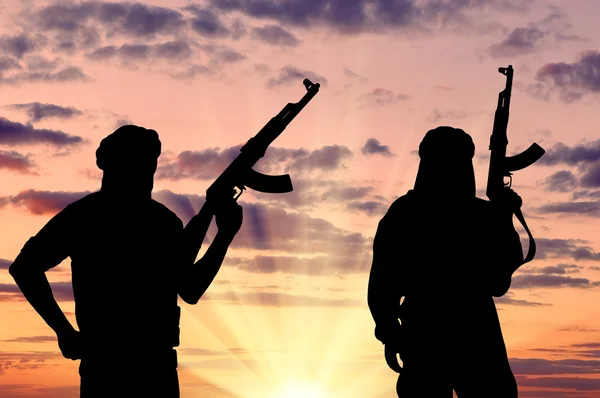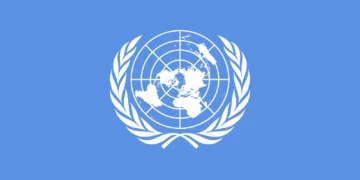Eventually, the federal government has succumbed to pressure and did what it should have done long ago. The need to expose suspected terrorism sponsors in Nigeria was delayed for obvious political reasons, especially during the Muhammadu Buhari administration. The decision by the United Arab Emirate (UAE) to make public a list of Nigerians involved in the illicit act did not spur the government to act until last week when the Nigerian Financial Intelligence Unit (NFIU), uncovered the identity of 15 entities, including nine individuals and six Bureau De Change operators and firms, allegedly involved in terrorism financing.
To this extent, we commend President Bola Ahmed Tinubu for mustering the courage to take the bull by the horn. Even more commendable is the invitation extended by the security agencies to Sheik Gumi to tell Nigerians what he knows about the operational modalities of bandits.
The controversial Kaduna-based Muslim Cleric who had repeatedly advocated negotiation with bandits for release of kidnapped persons, had raised concerns over the government’s unveiling of terror sponsor suspects, warning that the whole process shouldn’t be turned into a media trial.
The NFIU, on its part, in a document revealed that the Nigeria Sanctions Committee met on March 18, 2024 and specific individuals and entities were recommended for sanction following their involvement in terrorism financing.
Among the individuals named in the document, the Kaduna-based publisher, Tukur Mamu, seem to be the most prominent name. He made the list for allegedly participating “in receiving and delivering ransom payments of over $200,000 in support of ISWAP terrorists for the release of hostages of the Abuja-Kaduna train attack.” Mamu, we recall, is presently being prosecuted for allegedly aiding the terrorists who attacked the Abuja-Kaduna train in March 2022,
Besides being alleged top members of notorious international terrorist organizations, the government document said some of the suspects were linked to the terrorist attacks on St. Francis Catholic Church Owo, Ondo State on June 5, 2022 and the Kuje Correctional Center, Abuja on July 5, 2022.
However, the reaction of Nigerians to this decision by the government is not eliciting the kind of reaction that would have suggested that some sure-footed measures are being taken to rein in the monster that terrorism and banditry have ominously assumed. In the opinion of most Nigerians, it happened before and the monster was not tamed.
For instance, in 2022, the federal government announced the existence of 96 secret financiers of terrorism across the country who are backing Boko Haram and the Islamic State of West Africa Province (ISWAP). The then minister of information and culture, told the world at a press conference in Abuja that NFIU discovered that it also involved 123 companies and 33 bureau de change operators linked with terrorism in the country, in addition to 26 suspected kidnappers and seven co-conspirators.
Furthermore, the minister said then that 45 people suspected of funding terrorism had been arrested and would soon be prosecuted. Until this recent move, nothing was heard of the matter let alone anyone being prosecuted.
In that same year, the Nigerian Securities and Exchange Commission increased the power of the authorities to monitor financial links with suspected jihadist groups, meaning that the challenge isn’t necessarily one of intelligence.
Meanwhile, as far back as 2019, six Nigerians were prosecuted and convicted for sponsoring terrorism in the United Arab Emirates (UAE). While the Nigerian government fiddled over terrorism war here in Nigeria, an Abu Dhabi federal Court of Appeal Court sentenced two of the suspects to life imprisonment with deportation, and the four others got 10 years sentence each also with deportation. The Arab country said the Nigerians alongside other nationals (including their affiliates) were apprehended after close monitoring.
We would consider it unfair to judge this administration on the basis of an inherited misdemeanor even if the two systems share same political interests. Regardless, for a country that has battled with full blown terrorism for over a decade, it is hard to imagine that the entire Nigerian security architecture has not been able to arrest this menace which has grown into a blood thirsty hydra-headed monster, sapping away the human and natural resources of the country.
It is, therefore, pertinent for this administration to develop the political will to follow through with actual, not audio, prosecution having unveiled its own list of terror sponsors. Nigerians have been tormented for too long and necessarily demand this. Several intelligence officers, serving and retired, have revealed how highly connected to the strings of power these alleged sponsors are and why prosecuting them have remained elusive.
Perhaps, the benefit of the doubt will do for this administration for now. But one thing it cannot afford to do is attempt another media trial. Or, for that matter, allow political and other mundane considerations influence its judgment in this issue that is tugging at the very heart of the nation.





